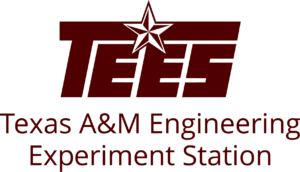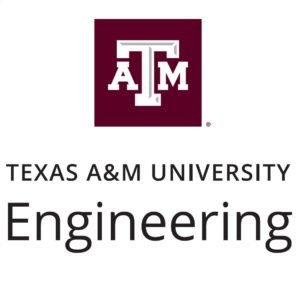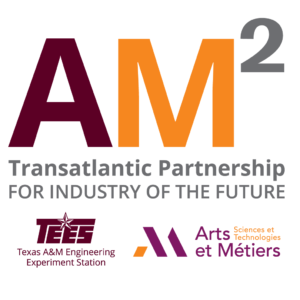Notice: Trying to access array offset on value of type null in /var/www/vhosts/france-science.org/faid-college-station2020.france-science.org/wp-content/plugins/js_composer/include/autoload/vc-shortcode-autoloader.php on line 64
Texas A&M Arts et Metiers Institute of Technology Office for Science & Technology The Texas A&M Engineering Experimement Station (TEES) is an engineering research agency within The Texas A&M University System. TEES has performed quality engineering research and developed technology to address challenging engineering problems for more than 100 years. TEES partners with industries, communities, government agencies, and academic institutions to find solutions to improve quality of life, foster economic development and enhance education and workforce development. TEES research activities focus on relevant needs in areas including energy systems and services, national security and safety, healthcare, materials and manufacturing, information systems and sensors, industry outreach, and education and training. The Texas A&M College of Engineering (CoE) is the engineering school of Texas A&M University in College Station and is home to more than 15,000 engineering students in 14 departments. The 2019 edition of the U.S. News & World Report ranks the Texas A&M University College of Engineering graduate program 15th and the undergraduate program 14th. The College maintains responsibility for three independent agencies: the Texas A&M Engineering Experiment Station (TEES), the Texas A&M Engineering Extension Service (TEEX), and the Texas A&M Transportation Institute (TTI). The Arts et Métiers Institute of Technology is a French engineering and research graduate school (Grande École). Arts et Métiers contributes to their production thanks to 14 research laboratories and one Doctoral School. Main challenge is to meet the expectations of French and international industry and to prepare for the future. The scientific teams are engaged in five major strategic priorities in as many economic sectors: transport, energy, health, housing and production. Research is undertaken in 20 different fields; such as digital engineering, biomechanical design, thermal energy and collaborative robotics. The research and training benefit from the close relationship between the school and its industrial partners, who share the same goals: initiating collaborative projects and fostering the emergence of new technologies. To strengthen this dynamic, the campuses and institutes have common tools: national alliances with other research centers and industrial partners; the Carnot ARTS Institute, which brings together 20 laboratories – those of Arts et Métiers and academic institutions; and development structures, such as the AMValor subsidiary, as well as incubation and entrepreneurship programs. As a founder member for the Industry of the Future Alliance, the Arts et Métiers’ strategic plan is very much orientated towards ensuring that the whole Arts et Métiers community plays an active role in the industry of the future. The Carnot Institute ARTS (Actions for Research, Technology and Society) is a French research institute. It was originally created to group the 15 laboratories of the engineering school Arts et Métiers ParisTech. Thanks to its multidisciplinary scientific skills and its technological research work, the Carnot ARTS institute accompanies industrialists throughout the life cycle of their products and thus meets the challenges of design, industrialization and manufacture of complex and innovative manufactured products. Its network of 20 laboratories on 16 sites across 9 regions relies on high-level expertise and technological platforms. The Carnot ARTS Institute offers multidisciplinary skills to cover all phases of a product’s life cycle (from design to service life to end of life): technological and innovation diagnostics, needs analysis, formalization of issues, feasibility studies, R&D studies, design and production of demonstrators and prototypes, conducting tests, technical provisions, etc. The transatlantic partnership between the Texas A&M Engineering Experiment Station and Arts et Métiers Institute of Technology, jointly referred to as the AM² was created in November 2017. AM² is a cluster for research, innovation and education in advanced manufacturing and advanced materials, bringing together researchers from Texas AM and Arts et Métiers. The AM² partnership is of immense strategic benefit to both France and the U.S. because it seeks to effect change to a global manufacturing industry through extensive research collaborations, education programs, and mutual faculty and student exchange initiatives that serve to elevate the AM2 partnership as well. The Office for Science & Technology of the Embassy of France (OST) is a team of 24 staff members including professors, senior researchers and engineers located in the Embassy (Washington, DC) and 6 consular offices (Atlanta – Boston – Chicago – Houston – Los Angeles – San Francisco) is dedicated to bilateral FR-US collaborations in Science and Technology. The OST’s main priorities are to monitor and report advances in Science and Technology in the US through newsletters and diplomatic channels, promote bilateral partnerships in science, technology and innovation, foster exchanges and increase mobility of researchers, doctoral students and entrepreneurs, serve as a liaison between French and American academic and scientific organizations as well as between the two countries’ central governments and the European Delegation, increase the visibility of France’s foremost laboratories, universities and start-ups, support young innovative companies and the internationalization of competitiveness clusters. Close collaboration between the OST and other diplomatic divisions, such as the Economic Department, the Cultural Services of the Embassy of France as well as French Research Organizations (CNRS , Inserm, CNES, CEA), allows the OST to efficiently handle the many economic and social implications of current science and technology issues.
Notice: Trying to access array offset on value of type null in /var/www/vhosts/france-science.org/faid-college-station2020.france-science.org/wp-content/plugins/js_composer/include/autoload/vc-shortcode-autoloader.php on line 64
Scientific committee

Texas A&M Engineering Experiment Station

Texas A&M College of Engineering

Arts et Métiers Institute of Technology

The Carnot Institute ARTS

AM² Transatlantic Partnership for industry of the Future

Office for Science & Technology
